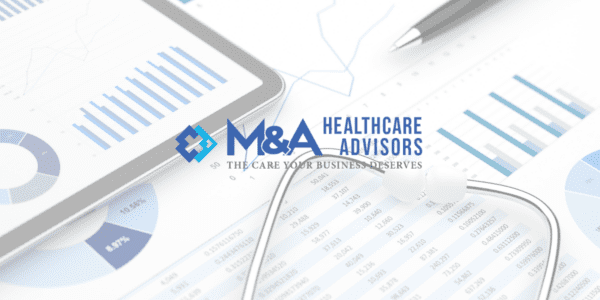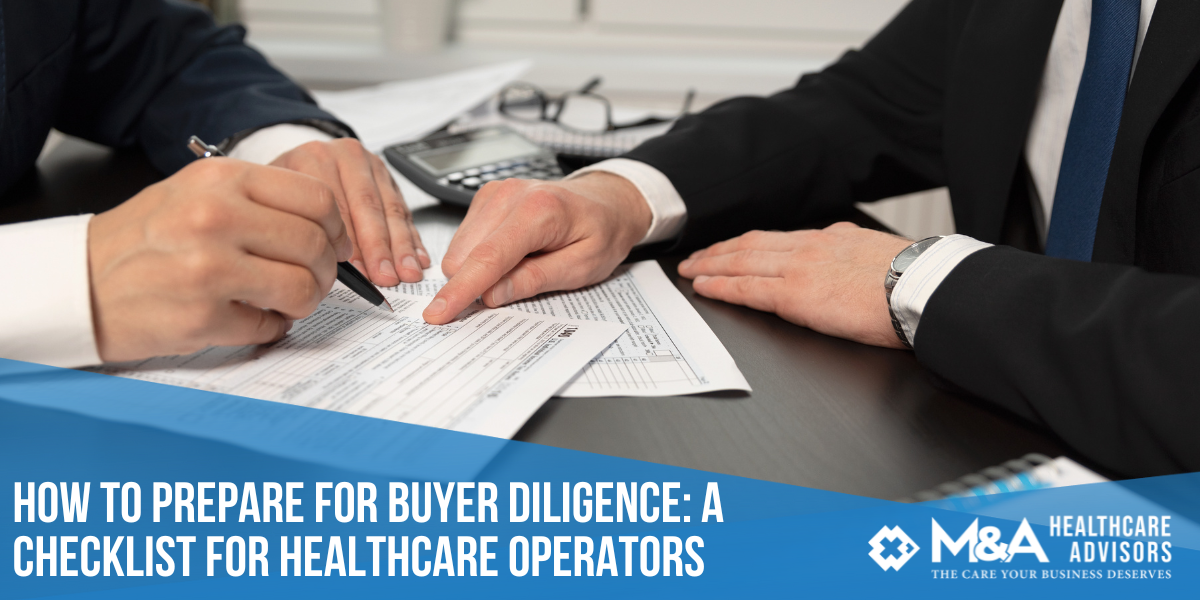Executive Summary
The Quality of Earnings or QoE process is a vital element in healthcare M&A, ensuring transparency, accuracy, and confidence in financial assessments. Unlike standard audits, QoE dives deeper to analyze sustainable profitability, cash flow adjustments, working capital, and industry-specific risks, making it indispensable for both buyers and sellers. Conducted during due diligence, QoE provides buyers with a clear picture of a company’s financial health and future earnings potential, while sellers benefit from proactively addressing deficiencies and bolstering their market position. As the healthcare M&A landscape evolves, the QoE process remains the cornerstone of successful transactions, equipping sellers to seize opportunities in this dynamic market.

Today, the Quality of Earnings process (QoE process) plays a pivotal role in healthcare M&A and is utilized in nearly every transaction. At its core, the QoE process is a comprehensive evaluation of a company's financial health by a third party. Unlike traditional audits, which focus on accuracy and compliance, a QoE analysis digs deeper to analyze sustainable profitability, healthcare-specific risks, adjustments to cash flow, net working capital, and other vital components of the financial health of a business.
In order to properly assess revenue streams, billing, add-backs for non-recurring items, receivables, and EBITDA, a proper QoE team will conduct detailed accounting to deliver financial statements on an accrual basis. The greatest risk to a transaction is discrepancies in a company’s accounting. Buyers conduct a QoE during due diligence to provide a clear picture of a company's historical and current financial picture. With an accurate analysis of the financial baseline, they can forecast the earnings potential and rate of return for their investors. Recently, we have been advising more sellers to conduct a QoE prior to going to market. This report will be the backbone of the confidential information memorandum (CIM) and it will provide the confidence that the company is performing at the level we are presenting to potential buyers. Regardless of when you decide to sell, ownership should conduct a QoE to understand their value, to address any deficiencies in the financials, and identify areas in need of improvement.
Key Components of the QoE Process
The QoE process addresses several critical elements to ensure transparency and accuracy in a deal:
Revenue Verification: Buyers want to confirm that the revenue reported is accurate and sustainable. This involves analyzing revenue streams, customer contracts, and payment structures. Note: During due diligence, certain buyers may start with an assessment of revenue streams, bank reconciliations, and EMR billing as a first step before moving into the expenses or other items lower on the P&L. Once they verify the top line, buyers may move forward with other due diligence as they complete the QoE process.
EBITDA Adjustments: Non-recurring expenses, such as one-time legal fees or extraordinary events, are identified and adjusted to present a clearer picture of recurring profitability and the long-term sustainability.
Net Working Capital (NWC): There is an emphasis on clarifying the accounts receivables, which requires a review of the company’s aging report and EMR billing. The payables analysis in NWC will be focused on payroll, which is by far the largest short term liability.
Long Term Debt & Other Liabilities: Reviewing any debts or liabilities that are contributing to interest expense which is one of the main addbacks in EBITDA. Moreover, when the company sold it will be without indebtedness. Seller’s should know how their cash proceeds will be affected by the loan principal.
Compliance Risks: Healthcare is a highly regulated industry, and compliance is a non-negotiable aspect of due diligence. Ensuring the company complies with healthcare regulations (e.g., Medicare, Medicaid) and identifying any legal or audit risks. The assessment of these risk may go beyond the scope the QoE, but the QoE can quantify the exposure.
Challenges in Healthcare M&A
Healthcare M&A presents unique hurdles that require careful navigation. Regulatory nuances can create additional layers of complexity, while legacy systems often complicate financial reporting and forecasting. Additionally, the diversity of revenue streams—ranging from government reimbursements to private payments—adds another dimension of complexity to the diligence process.
As a result, buyers require extensive documentation and clear, transparent financial reporting from sellers. Any inconsistencies or oversights can delay the process or even derail a deal.
Three QoE Process Strategies for Sellers to Thrive
For sellers, success in navigating the heightened scrutiny of buyers lies in preparation and strategy. Here’s how:
- Engage experienced advisors that specialize in healthcare transactions. Because these professionals bring expertise in preparing for due diligence and managing the complexities of the QoE process, they can make a significant difference.
- Organize financial records to help streamline the process and build buyer confidence. In many cases, opting to conduct a preliminary QoE-lite prior to entering the market, can bolster trust between the parties as the presented financial information has been confirmed to be clear, accurate, and readily available.
- Highlight operational strengths, showcasing the business’s operational efficiencies.
Beyond the numbers, talk about patient satisfaction metrics, robust referral channels, and consistent revenue drivers to enhance the perceived value of the company.
The Future of Healthcare M&A
As the M&A healthcare market continues to evolve, the Quality of Earnings process will remain a cornerstone of successful transactions. Sellers who embrace transparency, invest in preparation, and engage skilled advisors will be well-positioned to navigate buyer scrutiny and achieve favorable outcomes.
While the road to closing a deal may be longer and more complex than ever, it is also filled with opportunity for those who are prepared. For healthcare businesses in the lower middle market, the emphasis on diligent preparation and robust financial practices has never been more critical—or more rewarding. Contact us at M&A Healthcare Advisors for more information on the QoE process and resources to help your deal flow more smoothly.
Ready to Learn More?
M&A Healthcare Advisors is here to guide you, throughout the selling process.



